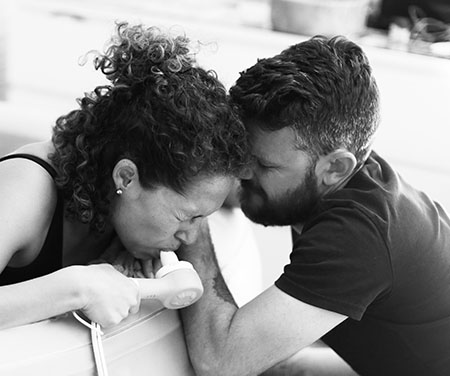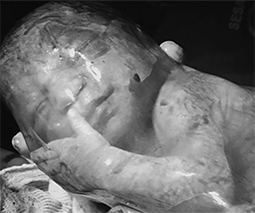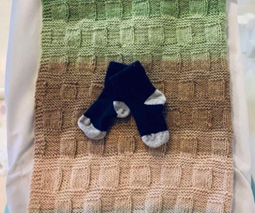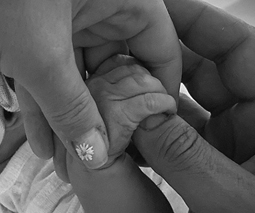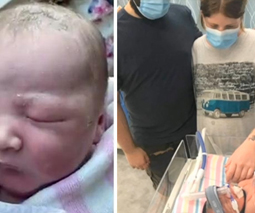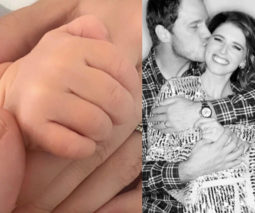Birth trauma: Very few mums want to talk about it but we really should

Most pregnant women are aware that labour and birth will be hard work, but few of us expect the birth process to end up out of control and frightening.
However, many mums-to-be discover this side of birth when they’re in the delivery suite and under the care of the medical team responsible for the safe delivery of their baby. Add in an unexpected turn of events and an emergency situation, and it’s no surprise that the birth experience can leave a negative impression on many mums. For some, it can leave a lasting emotional impact that gets in the way of enjoying their new baby and motherhood role.
Time to talk about it
Women need to be able to talk about their birth experiences in order to work through them, because harbouring negative feelings such as fear, disappointment and anger can make it hard to move on, and can even trigger postnatal post-traumatic stress disorder, a serious mental health condition.
However, many women are encouraged to ‘suck it up’ after a difficult birth, instead of being invited to talk through their experience, often feeling as though they need to focus on ‘feeling grateful’ for the safe delivery of their baby rather than worry about their own mental health. But being happy about having a healthy baby doesn’t erase the leftover emotions associated with the birth, which can be significant. Fear, disappointment and feelings of failure are pretty hefty ones to carry around after having a baby, and new mums have enough going on without having to hold onto all this stuff too.
It’s time for all of us to start talking openly about birth trauma.

What is birth trauma?
Birth trauma refers to birth experiences in which women have felt that their life or their baby was at risk, or felt frightened, powerless or unheard. Lots of women can work through it with some solid social support, but for others, it can be tougher to feel heard and encouraged to talk about what they went through. A small percentage of women can even go on to develop postnatal post-traumatic stress disorder after their birth, in which they experience ongoing trauma such as flashbacks and intense emotional and physical reactions when reminded of the event. Birth trauma can also put you at risk of developing postnatal depression and anxiety, which is why being able to talk about your birth experience is so important.
It’s okay to say your birth sucked
Don’t feel pressured to get over your bad birth experience and just feel grateful for the safe arrival of your baby. You count in all of this too, you know. During pregnancy, we’re told that birth is a beautiful event and we’re inspired to go for a natural, predictable delivery.
However, once you’re in the delivery suite, things can get complicated. Whether it’s the attitude of the midwife looking after you, or a turn of events you hadn’t counted on, or being directed to lie down and be internally monitored, women can end up feeling disappointed and unhappy with how the birth really pans out, which goes against the dreams of a calm, fulfilling birth experience they went in with.
Listen to more about birth trauma on Feed Play Love:
What to do if you struggle after the birth
If you had a tough time during birth and are struggling to make sense of it, it’s important to seek out someone to talk to. This could be the midwife at the hospital you birthed at, who may be able to go through your notes with you, or it could just be a good heart-to-heart with someone you know and trust. It can also help to write about your experience, which can help you make sense of what happened and come to terms with it.
For some women, it may not be enough just to talk about it – especially if you have some signs of postnatal PTSD, which requires treatment to deal with. If you’re experiencing ongoing anxiety, stress and flashbacks of your experience that are really getting in the way of adjusting to life with your new baby, you need to seek specialist help. A good starting point here would be your GP or by contacting a helpline like PANDA.
How to support a mum who had a difficult birth
You could support a friend who has been through birth by asking her about it – including how she feels about it. Give her the space to debrief and explore any feelings she brings up. Give her your very best listening ears. If you think she needs to talk to someone professional, suggest it to her, and tell her that it’s okay to talk about the negative side of giving birth. The more we normalise the talking side of things after a traumatic birth, the better. Do all this, and you will be one amazing friend.
